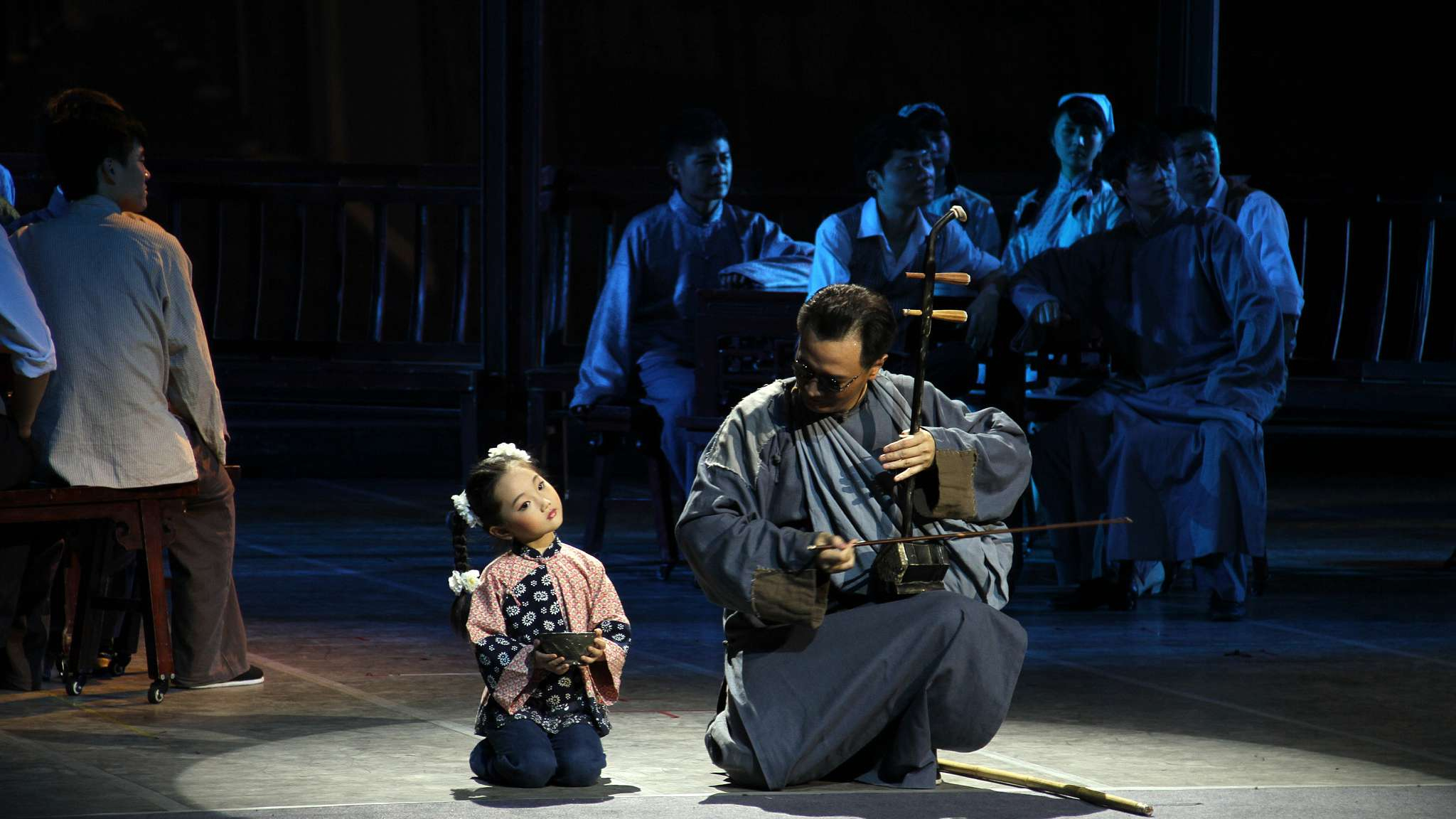
(Photo: CGTN)
A man rose on a cold winter’s morning. Picking up his three-string fiddle – a traditional Chinese instrument known in China as "Sanxian" – he was about to play when he suddenly noticed that the snakeskin on the instrument had been damaged.
"How could there be a rat biting the skin in my house in such a cold month? Fate no longer allows me to play the three-string fiddle," he thought desperately.
On that cold morning, he hanged himself after a life of poverty, drug abuse, and penchant for gambling -- and before his wife returned from begging for food.
He was Hua Yanjun, best known as “Blind Ah Bing” in China, a talented Chinese folk musician. Born on Aug. 17, 1893, in the late Qing Dynasty (1644 - 1912), Hua was adopted by his tribe after losing his mother when he was just an infant.
At the age of ten, his father, a Taoist priest, took him in and also had him become a priest, teaching him how to play Taoist musical instruments.When he was 12, Hua began to learn how to play the flute. His father often asked him to blow against the wind and put a block of iron on the tail of the flute to strengthen his wrist. When Ah Bing was learning the Erhu, a two-stringed bowed instrument with a low register, he played even harder.
His hard work could be seen from the blood that covered the strings of his Erhu and the calluses on his fingers. Hua eventually became famous nationwide after joining the Taoist music team.
In 1914, Hua’s father passed away, leaving him alone, but soon he became the main priest in his temple, and took charge of its finances. However, due to his poor management, the temple collapsed and he became addicted to drugs.
At 34, he began losing his sight and eventually became homeless, playing music in the streets for a living. In 1939, Hua Yanjun married Dong Caidi, a widow.
In the summer of 1950, professors Yang Yinliu and Cao Anhe from the Central Conservatory of Music arrived at Hua’s home to record his music.
At that time, he hadn’t played for three years. After practicing for three days, the professors recorded six of Hua’s most outstanding works.
"The Moon over a Fountain," Hua's Erhu work, was the most well-known among his masterpieces and it won the 20th-century Chinese classical music prize.
Hua's musical achievements have far surpassed that of his family and teachers. Moreover, he channeled the pain in his life through his music. His masterpieces are sincere, exciting and full of artistry, giving voice to the hearts of many.


